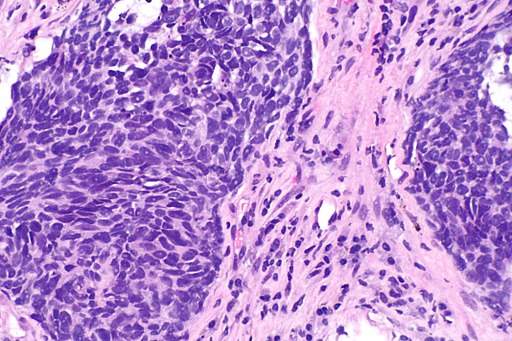
New research from scientists at UT Southwestern Simmons Cancer Center in Dallas, Texas has shown a combination therapy using two existing drugs could provide effective treatment for most forms of lung cancers.
The researchers combined a drug that targets epidermal growth factor receptor (EGFR) with one that targets tumour necrosis factor (TNF). The double-drug treatment was shown to effectively prevent the cancer from using TNF as an escape route. TNF inhibition was also shown to increase the disease’s sensitivity to EGFR treatment in mouse models.

Discover B2B Marketing That Performs
Combine business intelligence and editorial excellence to reach engaged professionals across 36 leading media platforms.
“This finding has the possibility of dramatically altering how we treat lung cancer,” said Hamon Center for Therapeutic Oncology Research director Dr John Minna.
The study builds on previous research by Simmons Cancer Center’s Dr Amyn Habib, who found the same drug combination to be effective in treating glioblastoma, a deadly type of brain cancer, in mouse models.
The research team has announced plans for a Phase II clinical trial of the combination therapy, which they hope will be initiated within a year due to the fact that both drugs are already FDA-approved. The planned study will examine the treatment in patients with both lung cancer and glioblastomas.
“If this strategy is effective, then it might be broadly applicable not only against lung cancer but also against other cancers that express EGFR, which include brain, colon, and head and neck cancers,” trial leader Dr David Gerber said.

US Tariffs are shifting - will you react or anticipate?
Don’t let policy changes catch you off guard. Stay proactive with real-time data and expert analysis.
By GlobalDataBoth types of drug from the combination are categorised as targeted drugs. This means they affect specific molecules within cancer cells, resulting in fewer side effects. This contrasts to traditional chemotherapy drugs, which attack both healthy and cancerous tissue and often have a broad range of effects, many of them adverse.
Previously, EGFR inhibitors have only been effective in treating the non-small cell lung cancers (NSCLC) that have an EGFR variant, which make up around 10% to 15% of NSCLCs. However, the new combination has the potential to work on all forms of the disease.
“There has been a tremendous effort over the past several years to block EGFR as a treatment for lung cancer, but this therapy only works in a small subset of patients. The cancer fights back with a bypass pathway,” said Dr Habib. “Blocking both of these proteins could be a treatment that is beneficial for the majority of lung cancer patients.”
Findings were published in the Journal of Clinical Investigation.
In the US lung cancer is the most common cause of cancer deaths, with the National Cancer Institute reporting that 26% of all cancer-related deaths are caused by lung cancer.
NSCLC, the type of lung cancer for which the EGFR/TNF inhibitor combination would be effective, comprises approximately 85% of all lung cancers.





